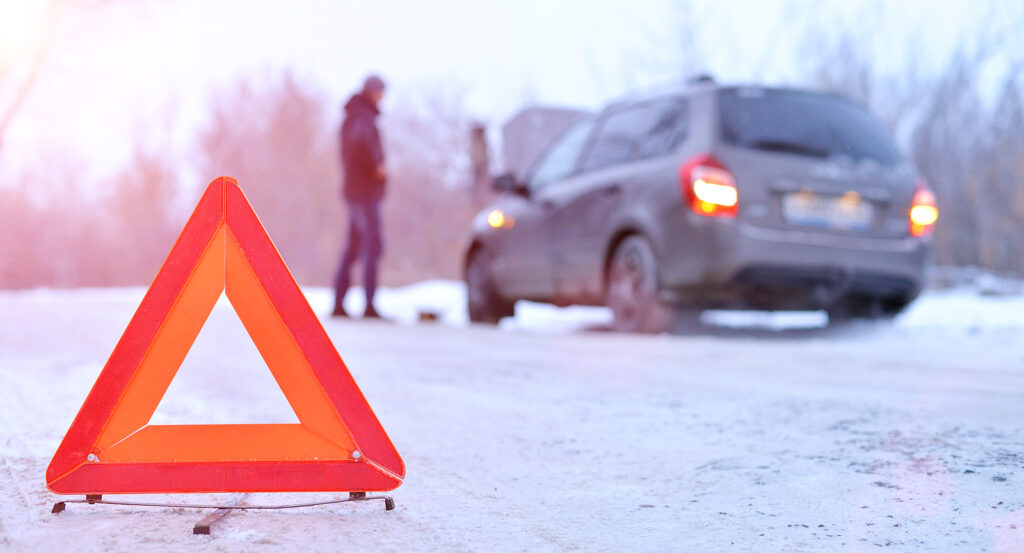Have you been outside, lately? It’s cold out there! With temperature steadily averaging between 20 and 30°F, it is wise to start thinking about how the cold air can impact your quality of life for the remainder of the season. A commonly overlooked area of concern is driving.
Continue reading to learn the top car problems that can be caused by cold air, plus what you can do to prevent them from happening this winter and next!

Winter Driving Tip #1
The number one tip for driving safely in the winter is to stay on top of all your routine factory scheduled maintenance for your vehicle. Whether you drive a car, truck, SUV, or van, regular car maintenance is vital for safe driving and dependable vehicular performance.
Car Parts Affected By Cold Temperatures
There are some areas of your car you should pay closer attention to in the winter season because they can be impacted by the cold air and temperature drops. The primary areas include your tires, catalytic converter, and car battery, but there are also many more.
Tires
Did you know that the cold air can cause your tires to deflate? Have you ever noticed that you have to put more air in your tires every winter? Well, that is because tire pressure drops an average of one pound of pressure per 10°F of temperature.
To avoid falling flat on the road unexpectedly or walking out to your car only to find that your tire is too low to drive it, be sure to check your tire pressure regularly, throughout the winter season.
Catalytic Converter
Your catalytic converter is a vital automotive part because it works as your vehicle’s emissions control system. Basically, catalytic converters reduce the toxic and harmful emissions generated by burning fuel in a car. Needless to say, your catalytic converter is important, but when it gets really cold outside, it can take a little longer for it to start working.
For this reason, it is recommended to always let your car run for a few minutes before taking off. This will allow the catalytic converter to warm up and do his job properly while you’re out on the road.
Car Battery
Cold temperatures can cause problems with your car battery because cold air slows the chemical process inside of it, therefore diminishing its ability to maintain a charge. The older the vehicle, the more susceptible to cold air battery issues.
To avoid car battery problems in the winter, be sure to have your vehicle’s battery inspected and serviced as needed before the season begins. To be safe, include a set of jumper cables in your winter roadside emergency kit.
Additional Car Issues Caused By the Cold Air
► Automotive Fluids – Not only can colder temperatures cause your automotive fluids to thicken up, therefore reducing their ability to perform efficiently, but in very cold temperatures, automotive fluids can freeze entirely. This includes fuel lines, windshield wiper fluid, and even motor oil.
► Transmission – The cold air really affects the air to fuel mix ratios, which can affect how quickly your engine responds when you drive. In colder temperatures, the dense cold air can reduce your engine power. This is why it is important to let your car warm up before driving it in the winter.
► LCD Screens – It is very common for LCD screens to become sluggish or s responsive when it’s very cold outside because the liquid crystals are affected by the cold air. There’s not really much you can do to prevent this in the winter; however, it is suggested that using insulating screens can help keep interior cabin warmth overnight.
Have you found yourself stuck on the side of the road or in a parking lot because your car is having mechanical issues due to the cold weather? Just contact Zore’s Towing for 24 hour roadside assistance and towing services in Indianapolis and its surrounding locations. We can help with flat tires, locked keys in the car, overheating engines, fuel tank fill-ups, and much more.
Related Posts:
Important Car Maintenance You Can Do Yourself
3 Reasons Why You are Having Problems With Your Car Radiator
How Long Does it Take for an Abandoned Vehicle to Get Towed?

